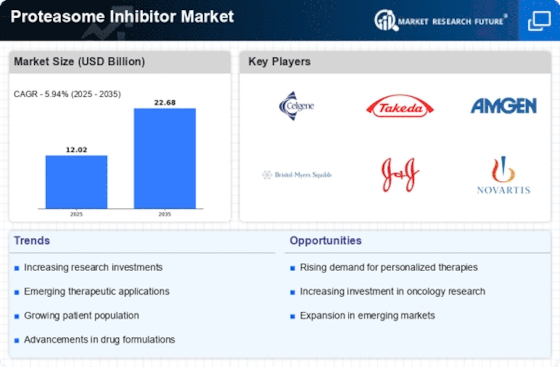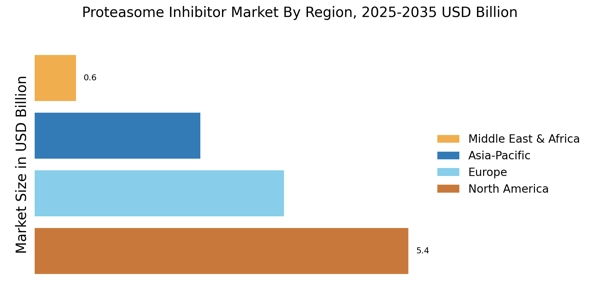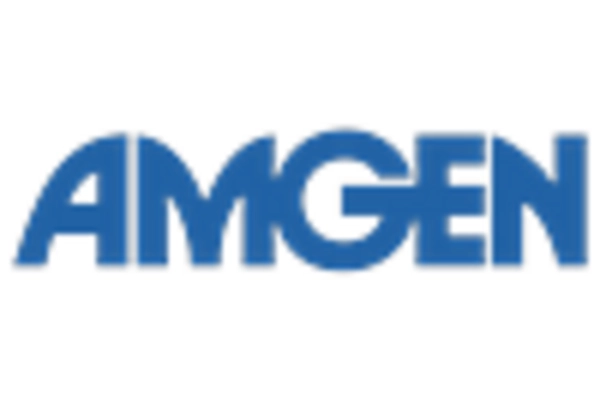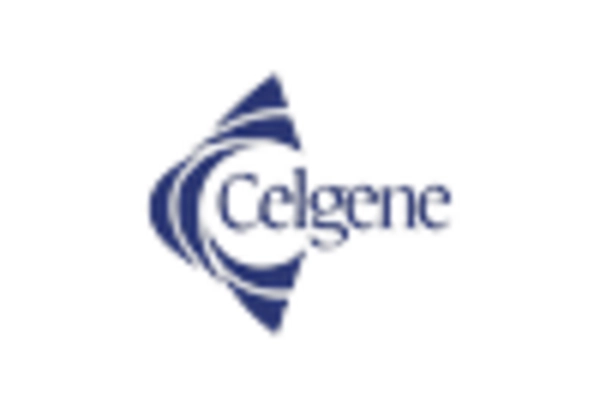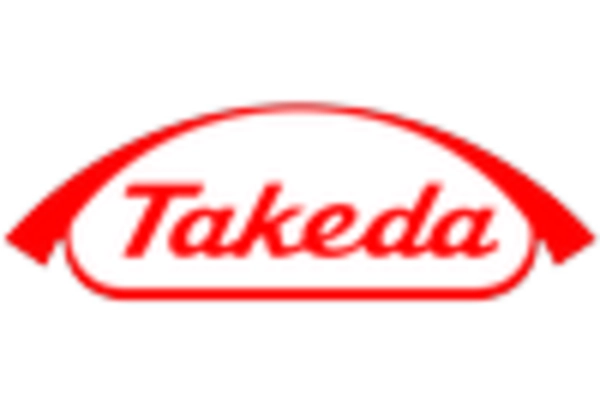Increasing Incidence of Cancer
The rising incidence of cancer worldwide is a primary driver for the Proteasome Inhibitor Market. Cancer remains one of the leading causes of mortality, with millions diagnosed annually. This alarming trend has led to an increased focus on innovative treatment options, including proteasome inhibitors, which have shown efficacy in treating multiple myeloma and certain types of lymphoma. The market for proteasome inhibitors is projected to grow significantly, with estimates suggesting a compound annual growth rate (CAGR) of over 10% in the coming years. As healthcare systems strive to improve patient outcomes, the demand for effective cancer therapies, particularly those targeting the proteasome pathway, is likely to escalate, thereby propelling the market forward.
Advancements in Drug Development
Recent advancements in drug development technologies are significantly influencing the Proteasome Inhibitor Market. Innovations in molecular biology and biochemistry have facilitated the discovery of novel proteasome inhibitors with enhanced efficacy and reduced side effects. The development of next-generation proteasome inhibitors is expected to address the limitations of existing therapies, potentially leading to improved patient compliance and outcomes. Furthermore, the integration of artificial intelligence in drug discovery processes is streamlining the identification of promising candidates, thereby accelerating the time to market. As a result, the market is witnessing a surge in new product launches, which is anticipated to contribute to a robust growth trajectory in the coming years.
Rising Awareness of Targeted Therapies
The growing awareness of targeted therapies among healthcare professionals and patients is driving the Proteasome Inhibitor Market. As more individuals become informed about the benefits of targeted treatments, there is a shift towards therapies that specifically inhibit the proteasome pathway. This awareness is further supported by educational initiatives and marketing efforts from pharmaceutical companies, which highlight the advantages of proteasome inhibitors in managing specific cancers. The increasing preference for personalized medicine is likely to bolster the demand for these therapies, as patients seek treatments tailored to their unique genetic profiles. Consequently, the market is expected to expand as more healthcare providers adopt proteasome inhibitors as part of their treatment regimens.
Growing Investment in Oncology Research
The increasing investment in oncology research is a crucial driver for the Proteasome Inhibitor Market. Governments and private entities are allocating substantial funds to cancer research initiatives, aiming to uncover novel therapeutic strategies. This influx of capital is fostering collaborations between academic institutions and pharmaceutical companies, leading to the development of innovative proteasome inhibitors. According to recent reports, funding for cancer research has seen a marked increase, with billions of dollars being invested annually. This trend not only enhances the research landscape but also stimulates the proteasome inhibitor market by facilitating clinical trials and expediting the approval process for new therapies.
Regulatory Support for Innovative Therapies
Regulatory support for innovative therapies is emerging as a significant driver for the Proteasome Inhibitor Market. Regulatory agencies are increasingly recognizing the need for expedited approval processes for breakthrough therapies, particularly in oncology. This supportive environment encourages pharmaceutical companies to invest in the development of novel proteasome inhibitors, knowing that they may benefit from faster market access. Recent initiatives aimed at streamlining the approval process for cancer treatments have the potential to enhance the market landscape. As a result, the proteasome inhibitor market is likely to experience accelerated growth, driven by the introduction of new therapies that meet the evolving needs of patients and healthcare providers.


